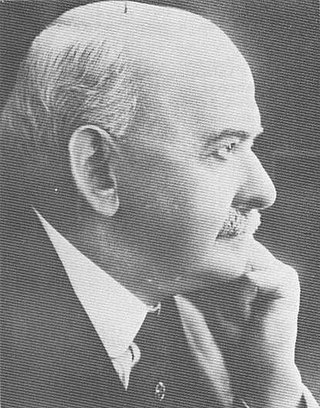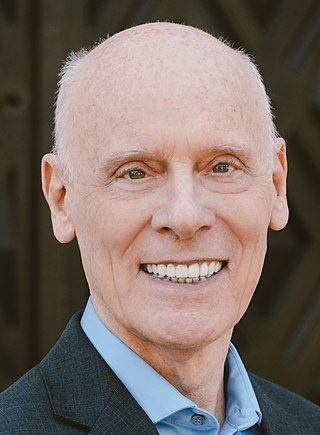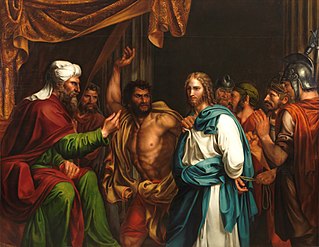
Apologetics is the religious discipline of defending religious doctrines through systematic argumentation and discourse. Early Christian writers who defended their beliefs against critics and recommended their faith to outsiders were called Christian apologists. In 21st-century usage, apologetics is often identified with debates over religion and theology.
Nontrinitarianism is a form of Christianity that rejects the mainstream Christian theology of the Trinity—the belief that God is three distinct hypostases or persons who are coeternal, coequal, and indivisibly united in one being, or essence. Certain religious groups that emerged during the Protestant Reformation have historically been known as antitrinitarian.
Restorationism, also known as Restitutionism or Christian primitivism, is a religious perspective according to which the early beliefs and practices of the followers of Jesus were either lost or adulterated after his death and required a "restoration". It is a view that often "seeks to correct faults or deficiencies, in other branches of Christianity, by appealing to the primitive church as normative model".
Christianity and other religions documents Christianity's relationship with other world religions, and the differences and similarities.
Word of Faith is a movement within charismatic Christianity which teaches that Christians can get power and financial prosperity through prayer, and that those who believe in Jesus' death and resurrection have the right to physical health.
The New Covenant is a biblical interpretation which was originally derived from a phrase which is contained in the Book of Jeremiah, in the Hebrew Bible. Generally, Christians believe that the promised New Covenant—new relationship with God—was instituted at the Last Supper as part of the Eucharist, which, in the Gospel of John, includes the New Commandment.
Joslin "Josh" McDowell is an evangelical Christian apologist and evangelist. He is the author or co-author of over 150 books.

Arno Clemens Gaebelein was a Methodist minister in the United States. He was a prominent teacher and conference speaker. He was also the father of educator and philosopher of Christian education Frank E. Gaebelein.
Norman Leo Geisler was an American Christian systematic theologian, philosopher, and apologist. He was the co-founder of two non-denominational evangelical seminaries.
Christian apologetics is a branch of Christian theology that defends Christianity.

Hugh Norman Ross is a Canadian astrophysicist, Christian apologist, and old-Earth creationist.
The fate of the unlearned, also known as the destiny of the unevangelized, is an eschatological question about the ultimate destiny of people who have not been exposed to a particular theology or doctrine and thus have no opportunity to embrace it. The question is whether those who never hear of requirements issued through divine revelations will be punished for failure to abide by those requirements.
The theology of the Seventh-day Adventist Church resembles early Protestant Christianity, combining elements from Lutheran, Wesleyan-Arminian, and Anabaptist branches of Protestantism. Adventists believe in the infallibility of the Scripture's teaching regarding salvation, which comes from grace through faith in Jesus Christ. The 28 fundamental beliefs constitute the church's current doctrinal positions, but they are revisable under the guidance of the Holy Spirit, and are not a creed.

Robert Passantino, was an American author and journalist who wrote on subjects related to Christian apologetics, philosophy, and the Christian countercult movement.

The Humiliation of Christ is a Protestant Christian doctrine that consists of the rejection and suffering that Jesus received and accepted, according to Christian belief. Within it are included his incarnation, suffering, death, burial, and sometimes descent into hell.
Alex McFarland is an American public speaker, author, educator, and advocate for Christian apologetics. He currently serves as organizer of the Truth for a New Generation Conferences. Alex McFarland currently co-hosts Exploring the Word on the American Family Radio Network, airing daily on nearly 200 radio stations across the U.S. He is also the host of the “Alex McFarland Show,” which airs weekly on NRB TV and YouTube. The “Alex McFarland Show” podcast is available at alexmcfarland.com/podcasts or wherever you listen to podcasts.
Evangelical theology is the teaching and doctrine that relates to spiritual matters in evangelical Christianity and a Christian theology. The main points concern the place of the Bible, the Trinity, worship, salvation, sanctification, charity, evangelism and the end of time.




